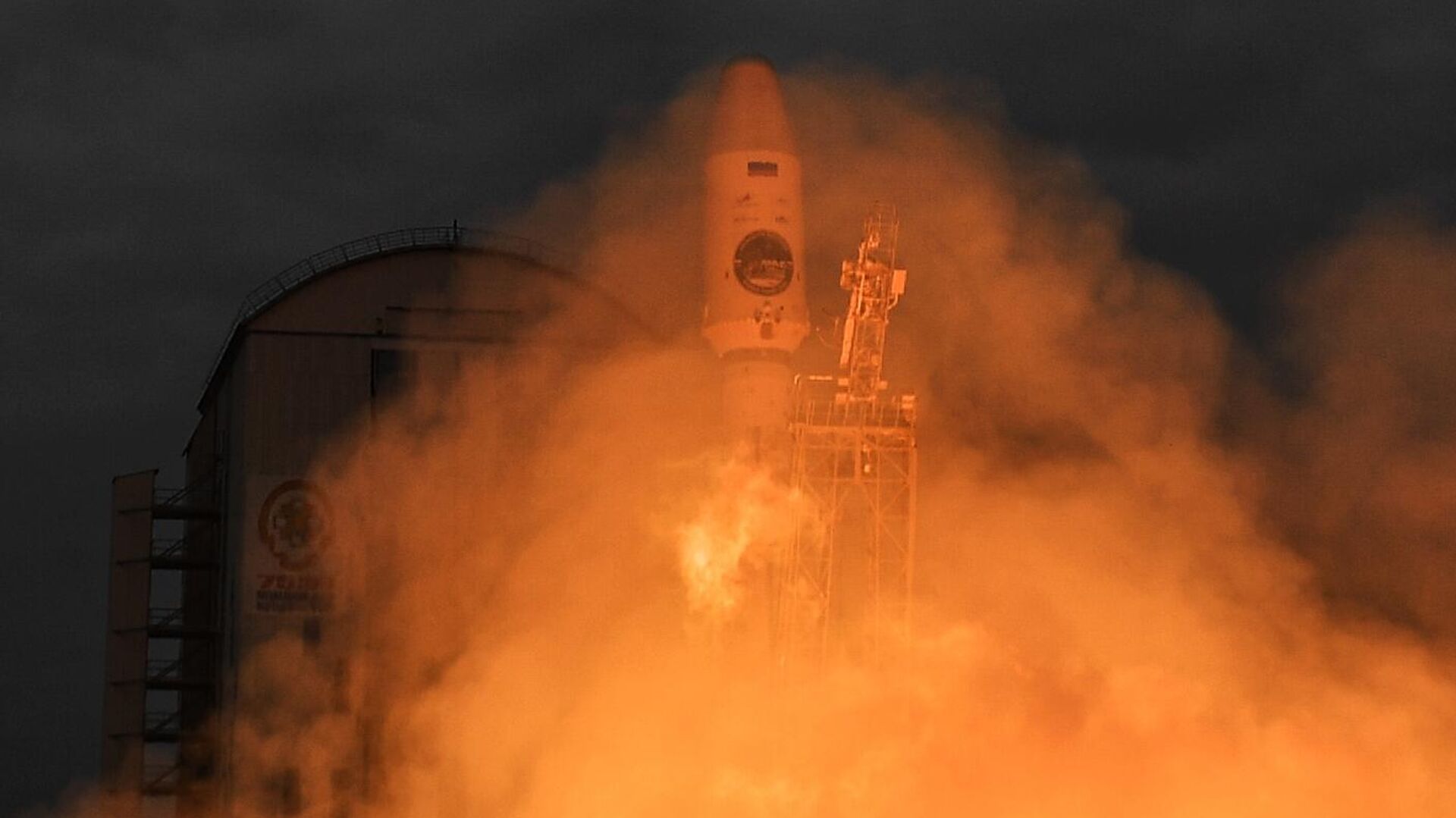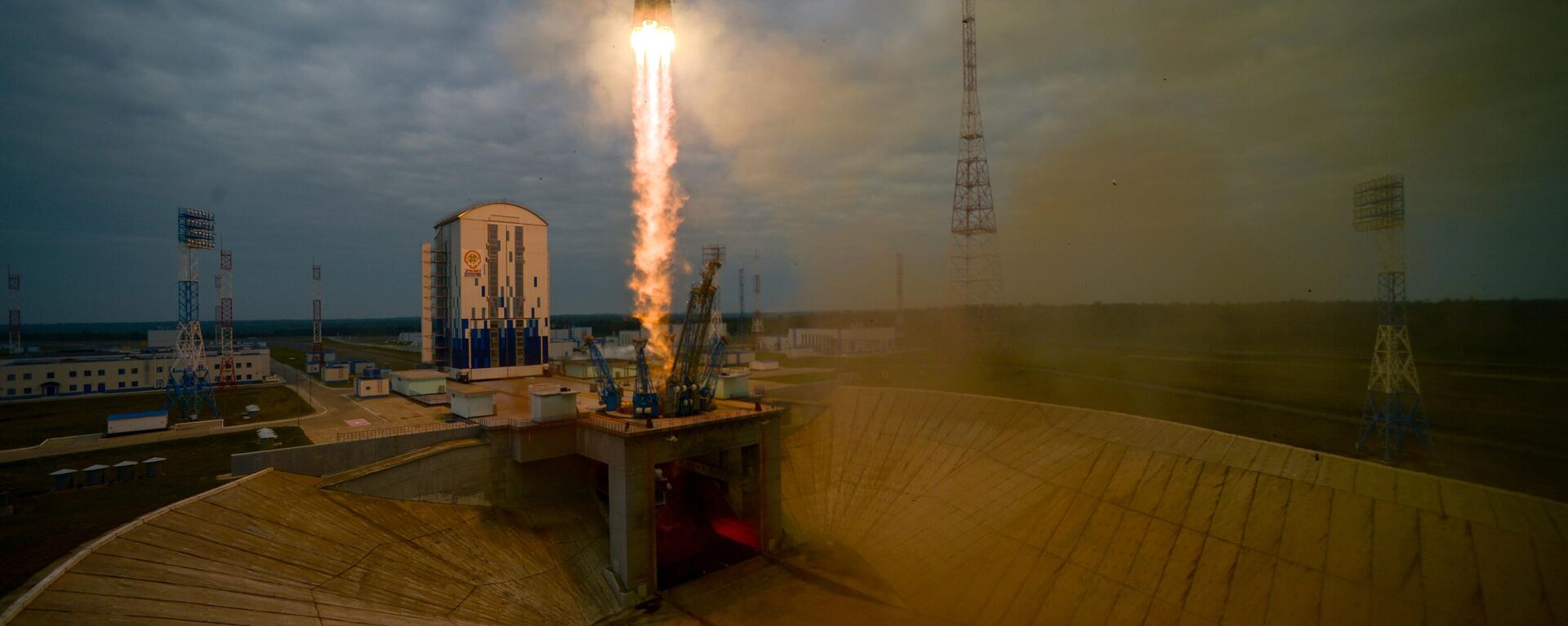https://en.sputniknews.africa/20230820/russias-luna-25-station-ceased-to-exist-by-crashing-into-moon-space-agency-says-1061463472.html
Russia's Luna-25 Station Ceased to Exist After Crashing Into Moon, Space Agency Says
Russia's Luna-25 Station Ceased to Exist After Crashing Into Moon, Space Agency Says
Sputnik Africa
The Russia's Luna-25 automatic landing module was expected to become the first station to make a soft landing on the Moon's South Pole with its complex terrain... 20.08.2023, Sputnik Africa
2023-08-20T10:51+0200
2023-08-20T10:51+0200
2023-08-20T11:13+0200
russia
moon
space
roscosmos
space exploration
spacecraft
https://cdn1.img.sputniknews.africa/img/07e7/08/14/1061463872_0:74:1410:867_1920x0_80_0_0_9829f43c2f316b1d9a0a429878181b13.jpg
According to preliminary calculations, the station Luna-25 went into an unplanned orbit, collided with the Moon and ceased to exist, Russian state space agency Roscosmos said.The agency pointed out that the connection with the station was interrupted on Saturday, and the efforts implemented during the weekend to search for the spacecraft and enter into contact with it yielded no results.On August 11, the Soyuz 2.1b carrier rocket blasted off from Russia's Vostochny Cosmodrome and put the Luna-25 into orbit, the first Russian lunar mission in nearly 50 years.The module entered a low orbit about 100 kilometers above the lunar surface on August 16.The mission is part of the Russian lunar program for the exploration and practical use of the Moon and its orbit to create a fully automated lunar base.
https://en.sputniknews.africa/20230819/instruments-on-russias-luna-25-module-make-first-measurements-in-lunar-orbit-1061453941.html
russia
moon
space
Sputnik Africa
feedback@sputniknews.com
+74956456601
MIA „Rossiya Segodnya“
2023
Maxim Grishenkin
https://cdn1.img.sputniknews.africa/img/07e7/0a/17/1063018107_0:0:1104:1103_100x100_80_0_0_03090c85a11f5d2e8a19cf1d989443c9.jpg
Maxim Grishenkin
https://cdn1.img.sputniknews.africa/img/07e7/0a/17/1063018107_0:0:1104:1103_100x100_80_0_0_03090c85a11f5d2e8a19cf1d989443c9.jpg
News
en_EN
Sputnik Africa
feedback@sputniknews.com
+74956456601
MIA „Rossiya Segodnya“
Sputnik Africa
feedback@sputniknews.com
+74956456601
MIA „Rossiya Segodnya“
Maxim Grishenkin
https://cdn1.img.sputniknews.africa/img/07e7/0a/17/1063018107_0:0:1104:1103_100x100_80_0_0_03090c85a11f5d2e8a19cf1d989443c9.jpg
russia, moon, space, roscosmos, space exploration, spacecraft
russia, moon, space, roscosmos, space exploration, spacecraft
Russia's Luna-25 Station Ceased to Exist After Crashing Into Moon, Space Agency Says
10:51 20.08.2023 (Updated: 11:13 20.08.2023) The Russia's Luna-25 automatic landing module was expected to become the first station to make a soft landing on the Moon's South Pole with its complex terrain on August 21.
According to preliminary calculations, the station Luna-25 went into an unplanned orbit, collided with the Moon and ceased to exist, Russian state space agency Roscosmos said.
"According to the preliminary analysis, due to the deviation of the actual pulse parameters from the calculated ones, the Luna-25 spacecraft moved to a non-calculated orbit and ceased to exist as a result of a collision with the surface of the Moon," the statement noted.
The agency pointed out that the connection with the station was interrupted on Saturday, and the efforts implemented during the weekend to search for the spacecraft and
enter into contact with it yielded no results.
A specially formed interdepartmental commission will investigate the reasons for the incident, Roscosmos added.
On August 11, the Soyuz 2.1b carrier rocket blasted off from Russia's Vostochny Cosmodrome and put the Luna-25 into orbit, the first Russian lunar mission in nearly 50 years.
The module
entered a low orbit about 100 kilometers above the lunar surface on August 16.
The mission is part of the Russian lunar program for the exploration and practical use of the Moon and its orbit to create a fully automated lunar base.



